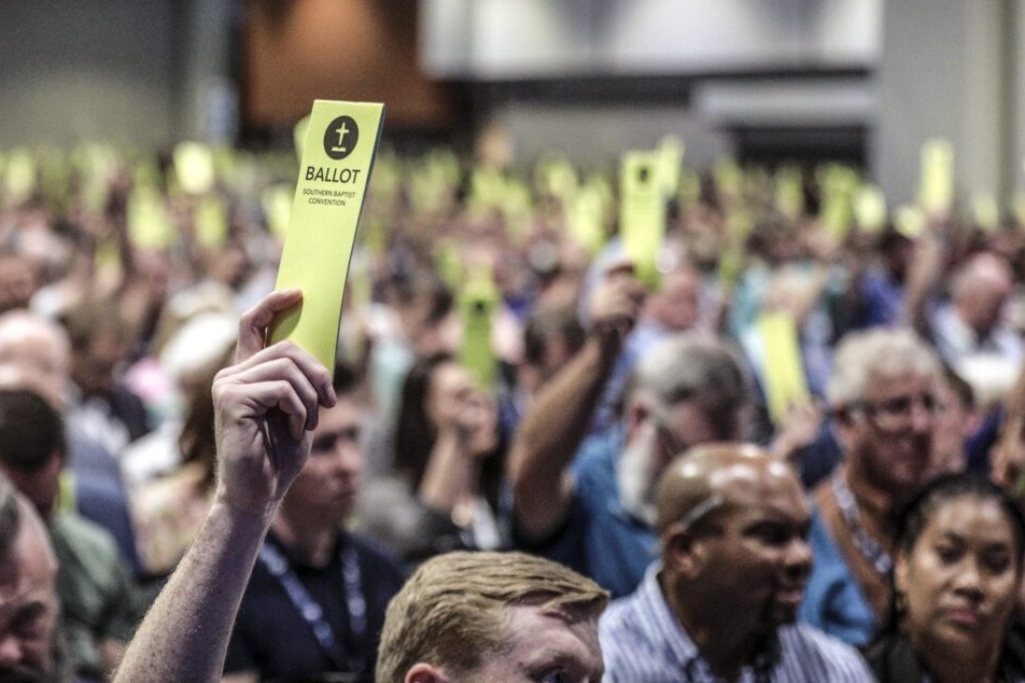
“You cannot continue as a member of this church while you are actively unfaithful to your wife.”
“You cannot remain a member in good standing if you continually sow discord in the body.”
“You cannot deny the bodily resurrection of the saints and call this your church home.”
These are just a few examples of the real conversations I have had over the years in an attempt to reinforce our congregational commitment to truth in the body of Christ. Each one represents a difficult but necessary effort of accountability among believers.
I realize that words like accountability and discipline are not popular today, largely because they feel harsh and unloving. Perhaps some of our confusion stems from the popular misinterpretation of Jesus’ command to judge not lest you be judged (Matthew 7:1).
Yet Scripture unequivocally instructs members of the local church to restore those who stray in a spirit of gentleness (Galatians 6:1). Our Lord reminds us to judge ourselves first and more severely than others, precisely because we will need to make judgments about others at times (Matthew 7:3-5). Jesus also outlines the necessary steps which ensure that discipline within the church is fair and redemptive (Matthew 18:15-20).
When the church at Corinth celebrated the sexual deviance of a member, the apostle Paul rebuked their arrogance before calling for the man’s excommunication from the fellowship (1 Corinthians 5:1, 5, 7, 13). Their efforts to be affirming, accepting and inclusive were the opposite of God’s expectation, insulting the Savior who washed, sanctified and justified them (1 Corinthians 6:9-11).
Likewise, one of the greater weaknesses of modern Christianity is the reckless insistence that the acceptance of bad behavior is an expression of love.
The broader principle Paul offers believers today is that we should not “associate with a so-called brother if he is an immoral person, or covetous, or an idolater, or a reviler, or a drunkard, or a swindler (1 Corinthians 5:11).” Note the emphasis is on those who parade themselves as Christ followers. Accountability is God’s prescription within the church, not outside it.
Christians are not called to judge unbelievers (1 Corinthians 5:9), knowing that they are outside of God’s grace and recipients of divine judgment (1 Corinthians 5:13). Instead, we should befriend non-Christians, pray for them and continually seek to share the good news of the gospel (Matthew 5:13-15; Matthew 28:19-20; Acts 1:8).
Tragically, we often invert these principles. Far too many believers are guilty of judging those outside the church whom God wants us to reach while ignoring those inside the church whom God wants us to judge. We are to evangelize the former while preserving the integrity of the latter.
The difference, you see, is one of expectation. We should expect unbelievers to live in wickedness, openly defying the Lord’s commandments. Those who are dead in trespasses and sins will walk according to the course of this world (Ephesians 2:1-2). The standard for professing believers is much higher, though, because of the transformative work of the Spirit who dwells in us (John 14:16-21).
So why does the Lord require accountability among His people?
Of all the reasons given in Scripture, the opportunity for repentance is perhaps the most persuasive. Without mincing words, Paul insisted that delivering the immoral man to Satan “for the destruction of his flesh” was the best hope for the salvation of his spirit (1 Corinthians 5:5).
Clearly, the goal was not public shame, but eternal repentance and salvation. If this professing believer was unsaved, he might come to the faith. Or, if he was simply a wayward, prodigal son, he would assuredly turn from his wickedness. Either way, the goal of holding him accountable for his actions was restoration, not retaliation.
What requires accountability? And when should a congregation exercise discipline?
Albert Mohler offers three helpful categories that would justify turning a member out of the church.
First, are matters of doctrinal fidelity. Put simply, we are not free to believe whatever we want to believe while remaining part of Christ’s body. Those who do not abide in the teachings of Jesus do not have God (2 John 9).
You cannot, for example, deny that the Son is God in human flesh, that the Trinity exists or that salvation is by grace through faith and call yourself a Christian. These are heretical doctrines that put people outside of the faith.
Second are matters of morality or purity of life issues. Here, we are not free to live however we choose and continue as a member of the Lord’s church. When crafting a picture of unrighteousness, Paul includes fornicators, idolaters, adulterers, the effeminate, homosexuals, thieves, the covetous, drunkards, revilers and swindlers as those in unbelief (1 Corinthians 6:9-10).
While the list is not exhaustive, the point is that these are behaviors God saves people out of, not lifestyles we should remain in (1 Corinthians 6:12).
Third are matters of unity. No congregant is free to cause division within the church. Scripture admonishes us to keep our eyes on those who cause dissensions (Romans 16:17) and to reject a factious man after a first and second warning (Titus 3:10-11). Sitting by idly while schisms grow can cause significant damage in a congregation.
No matter the reason for the drastic actions that accountability sometimes requires, repentance and restoration must always be the goal. Measures like these are always meant to help and never hurt. Accountability matters in the local church.
(EDITOR’S NOTE — Adam Dooley is pastor of Englewood Baptist Church in Jackson, Tenn. He writes at adamdooley.org.)


